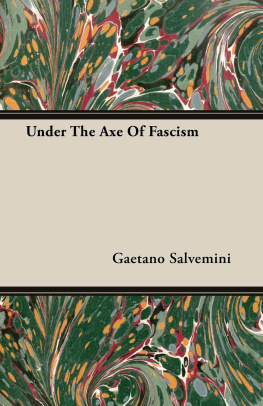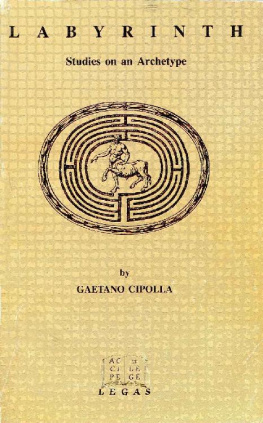This edition is published by Muriwai Books www.pp-publishing.com
To join our mailing list for new titles or for issues with our books muriwaibooks@gmail.com
Or on Facebook
Text originally published in 1954 under the same title.
Muriwai Books 2017, all rights reserved. No part of this publication may be reproduced, stored in a retrieval system or transmitted by any means, electrical, mechanical or otherwise without the written permission of the copyright holder.
Publishers Note
Although in most cases we have retained the Authors original spelling and grammar to authentically reproduce the work of the Author and the original intent of such material, some additional notes and clarifications have been added for the modern readers benefit.
We have also made every effort to include all maps and illustrations of the original edition the limitations of formatting do not allow of including larger maps, we will upload as many of these maps as possible.
THE FRENCH REVOLUTION 1788-1792
by
GAETANO SALVEMINI
Professor of History in the University of Florence and Emeritus Professor of Harvard University
Translated from the Italian by
I. M. RAWSON
PREFACE
THE word revolution may mean either the forcible overthrow of an established social or political order (when an unconstitutional change is effected by the Government itself it is called a coup dtat ) or any great change brought about in a pre-existing situation, even slowly and without violence. It is used in the former sense with reference to the two Paris revolutions of 1830 and 1848, or the Russian revolution of 1917. It is used with the latter significance when we say that Columbus brought about a revolution in mediaeval geography, Copernicus in astronomy and Galileo in scientific method: and that an industrial revolution began in England during the second half of the eighteenth century.
The word can be used in both senses for the upheaval that took place in France towards the end of the eighteenth century. In so far as it consisted in the violent destruction of the feudal and monarchical rgime, the French Revolution may be said to have come to an end on September 21 st , 1792, when the monarchy was formally abolished. But as the creation of a new social and political order it continued until the coup dtat of Brumaire, indeed, up to the time of the Consulate for Life, when nineteenth-century France appeared finally constituted.
This book is concerned with the French Revolution as understood in the first sense. Its aim is to explain why and in what way the feudal monarchy was destroyed.
In this endeavour it has been necessary to present the four revolutionary years in relation to a complex system of cause and effect the origins of which must be traced to former times, often centuries before the Revolution itself. A considerable part of the book, therefore, is devoted to social conditions, ideas and events chronologically remote from, but logically bound up with, the revolutionary period. The authors aim has been, not to bring new facts to light, but simply to put before his readers, in a rapid synthesis, the conclusions he has reached in the course of extensive study of the subject.
The history of these years is covered by a single term, the French Revolution, which conjures up in our minds a general picture of its events. But the use of proper names has so accustomed us to seeing, in our minds eye, the real entities behind them that we often come to regard collective and abstract nouns as personifications. And just as we think of disease as something extraneous to ourselves, and say that the malady has killed the patient (who in fact has simply died showing certain morbid symptoms) so we are apt to treat the Revolution as having an existence apart from the men of the time, and say that it destroyed the feudal rights, proclaimed the Rights of Man, dethroned Louis XVI and so on. But the Revolution did nothing of the kind. It is merely an abstract term by means of which, to save time, we refer to the way in which all these events of the revolutionary period were brought about.
The practice has its advantages, provided that one is always ready mentally to replace the abstract by the concrete term. We can say that the Revolution did away with feudal dues, so long as we remember that after the fall of the Bastille it was the peasants who refused to pay them, the Constituent Assembly that failed to enforce them, the Legislative that formally abolished almost all of them and the Convention that completed their legal suppression. There is no harm in asserting that the Revolution was dominated by two ideas, those of equality and popular sovereignty, if we bear in mind that the metaphor simply implies that all the democratic agitators of the time and the majority of deputies in the revolutionary assemblies had an unshakable faith in these two philosophical dogmas. And we may very well say that Paris was the heart of the Revolution, on the understanding that this is only taken as a concise and effective way of stating that the most zealous revolutionaries were to be found in the capital, and that their actions had a powerful influence upon those in the rest of France.
The trouble begins when we come to regard the Revolution as an historical force in itself. For instance, it is a fact that both the Constituent and Legislative Assemblies and the Convention were largely composed of lawyers, and that very few of the industrialists, tradesmen, bankers and other men of affairs who really formed the bourgeoisie were elected to it. Such citizens as these have their own business to attend to, and find little time for politics; lawyers, on the other hand, besides being facile speakersa great asset in public lifefind in politics an excellent way of making a name for themselves and of increasing the scope and gains of their calling. For this reason the electors of the revolutionary period usually had a choice of various candidates belonging to the legal profession, but were rarely free to choose between a lawyer and, for instance, an engineer.
This circumstance, though not unusual in modern representative assemblies, was of considerable importance during the French Revolution: for it meant that the policy of these bodies, in emanating, not from the bourgeoisie proper but from its legal experts, was not always in conformity with the interests of the economically dominant class: being, in fact, an outcome of moral and intellectual habits of mind different from and even at times opposed to theirs. This explains certain ultra-democratic measures of the Constituent and Legislative Assemblies that would never have been passed by a chamber of bankers and industrialists.
Yet so eminent an historian, for instance, as J. L. Jaurs is not satisfied with such a simple explanation. He writes: If the Revolution sent only a handful of merchants and tradesmen to the Constituent and Legislative Assemblies and to the Convention, this was because it instinctively felt reluctant to give its great work the stamp of too narrow a class; and because, prompted not only by the economic growth of the bourgeoisie but by the whole trend of contemporary thought, it wanted the law to give full expression to the nations real wishes and to all the complex interplay of human relations. For this reason the Legislativebetter-fitted for its task, without doubt, than an assembly of industrialists and manufacturers, accustomed to the hierarchy of commercial lifeproclaimed universal suffrage after August 10 th . The Revolution thus appears in person, and, endowed with instincts and reasoning power, votes in place of the electors, to whom no one would have thought of attributing such political sagacity. {1}











